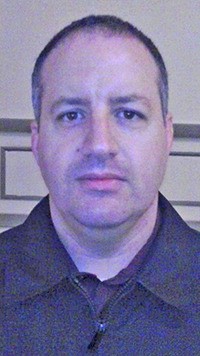Few American music history books take a comprehensive look into the birth of rock ‘n’ roll, soul and country.
Jim Cosby takes it considerably further, researching deeper into the roots and people behind the music.
Cosby, a Philadelphia lawyer who grew up in Kent, discovers some interesting persons, places and storylines, presenting a refreshing look at indigenous music that emanated from the country as far back as the 1940s. His summer released book, “Devil’s Music, Holy Rollers and Hillbillies: How America Gave Birth to Rock and Roll” (McFarland & Company, Inc.), colorfully examines the birth of the music we hear today.
The project took four years of exhaustive research and travel, including trips to the soulful Deep South, for Cosby, a lifelong rock fan and music writer. He has previously published several law review articles on the parent-child relationship. His work has appeared in various outlets such as Curator magazine online and Gonzo Today, and he previously wrote for MusicOMH.com.
Music moves Cosby and that helped serve as the impetus for the book.
“I realized there’s so much I didn’t know … like what was the first rock record? Why don’t I know that?” said Cosby, a 1987 Kent-Meridian High School graduate who went on to earn a degree at the University of Washington and later, a law degree at Temple University. “From studying it, I had all these questions. … What was the deal with Elvis (Presley), and was he just a cultural fief or what? … What was happening before rock music?”
The book has received good reviews. Examiner.com called it “one of the quintessential books on rock music’s roots.”
As Cosby explains, rock music today is universal and its popular history is well known, yet few know how and why it really came about. Cosby wanted to explore events long overlooked or misunderstood. His book describes how some of the most disenfranchised people in a free and prosperous nation strove to make themselves heard – and changed the world.
“I discovered amazing stories, like a (pioneering disk jockey) in Memphis, (‘Daddy-O’) Dewey Phillips. He’s almost as important as Elvis, as one example,” Cosby said.
Cosby also found out more about gospel star Sister Rosetta Tharpe, a pioneering artist, and the influence of so-called “holy rollers” of the Pentecostal church who became crucial performers – Presley, Jerry Lee Lewis and Little Richard.
“Rock history books, almost all of them, will say something about the blues then will jump into Elvis and Chuck Berry,” Cosby said. “I didn’t see any books out there that really talked about how exactly did rock and roll come about, going from the blues to even real hillbilly music to church influences. How did that all actually come together? I didn’t really see any books that actually covered that.” The story continues.
There is so much material that Cosby is in the process of bridging the book with another, which picks up the history of music from the 1960s to the modern era.
“I just think it’s an area that’s been totally overlooked, and because it’s rock music, it’s fun. It’s automatically entertaining,” Cosby said of his work. “It’s serious academic, but it’s rock music, colorful, characters and all that. … I think it works well.”
For more on the book, visit tinyurl.com/ zjupx6y.
Talk to us
Please share your story tips by emailing editor@kentreporter.com.
To share your opinion for publication, submit a letter through our website https://www.kentreporter.com/submit-letter/. Include your name, address and daytime phone number. (We’ll only publish your name and hometown.) Please keep letters to 300 words or less.

